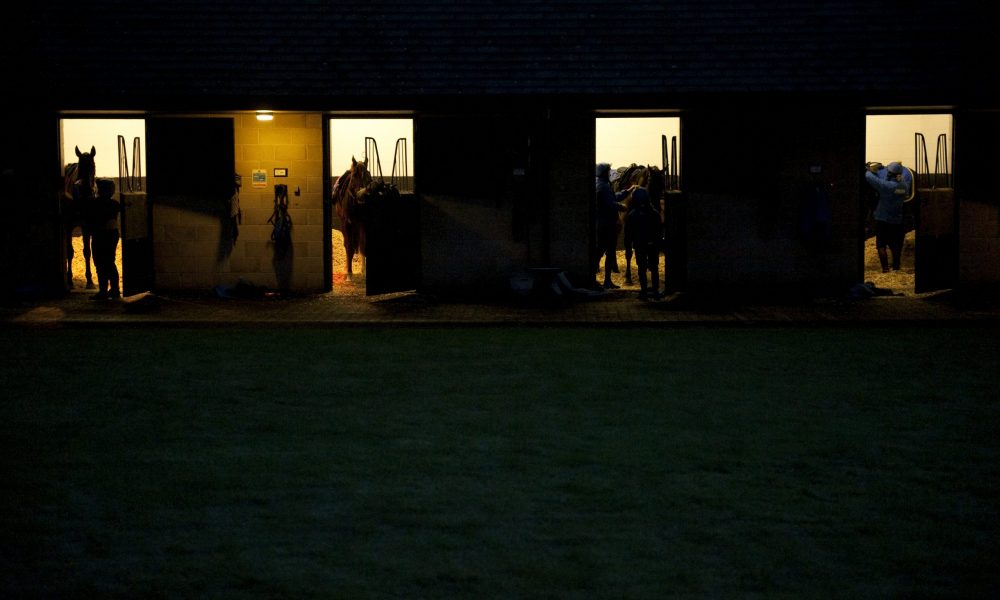‘It’s been a mounting issue for years and now it’s reaching a critical point’

There’s been an all-too-common theme in the conversations I have been having with racing participants lately; staff – and the lack of them.
Leading trainers including Danny O’Brien, who is currently on the lookout for an assistant trainer, and Richard Freedman recently took to Twitter to express their concerns and pleaded for the industry to do more about it.
It’s not just high-profile racing stables that are struggling to find people to do the grunt work and handle their valuable thoroughbred bloodstock day in and day out either. The same problem is faced by stud farms, pre-trainers and breakers, and spelling farms. It’s been a mounting issue for years and now it’s reaching a critical point. As a result, some businesses are unable to function, with no choice but to shut down.
From my perspective, there are some pretty obvious reasons why staffing is challenging.
Firstly, the difficult working hours. It’s hardly enticing to have to start work rain hail or shine at 3AM and be paid a minimum wage to do it. Secondly, there are not enough skilled and passionate people available to do it. Thirdly, the image of racing has been on the nose for a while now and many of the younger generations in particular view the sport as a dim dark world with little or no concern for the welfare of the horse. They see racing as a sport and industry that is driven entirely by the quest to get to the winning post first.
They question the morality of it all and don’t harbour desires to get involved, on any level.
Add to this all Covid and the virtual freeze on internationals being able to travel to Australia and work. That in itself cut a swathe through the staffing ranks. Other industries such as hospitality and agriculture have suffered hugely as well.
Racing administrators are so focused on upping prize–money, bringing more investors in, and attracting large race day crowds at carnivals they don’t seem to be doing too much about it.
Not for one minute am I opposed to the tremendous initiatives being rolled out BUT I can’t help but wonder how putting the blinkers on when it comes to this monumental staffing issue can be good for the long-term health of the industry?
If there are few or no staff at all to keep the wheels turning there will eventually be no racing. It’s unsustainable to continue channelling huge money and effort into prize–money levels for elite racing. That just promotes the unhealthy and traditional image that racing is the sport of kings as meantime thousands of stable staff toil away before first light, and often after last light, tending to the horses.
Traditionally, being a groom could, and often would, lead to bigger things. Many of today’s leading trainers started out that way and worked their way up to foreman positions before branching out on their own.
Now, with stable staff wages so low and the cost of living so high, that is no longer possible. Sure, some operations are generous with their wages and look after their staff well and that’s commendable but, as I’m sure they would agree, it’s still not enough to change the status quo.
So what’s the answer, especially when the general work ethic of Australians is on the wane?
Employing robots would be a simple solution.
Jokes aside, I think we need to look at the image of horseracing bare in the face. What can we do better to not only attract people to the industry but retain them?
Lindy Maurice’s Thoroughbred Industry Careers has helped recruit many new talents and is doing a brilliant job of better connecting youth with racing.
Training is key but there’s not enough of it. Courses are being closed down, not opened, and this is seriously concerning.
Why on earth is this happening and who honestly thinks this is wise? If it’s a matter of funding then the industry must reassess why millions continue to be poured into prize–money and not this.
There’s not much point in buying a horse to win The Everest if there’s nobody to feed it, muck its box out, and exercise it. That’s about as logical as buying an expensive car and not having fuel to be able to drive it.


